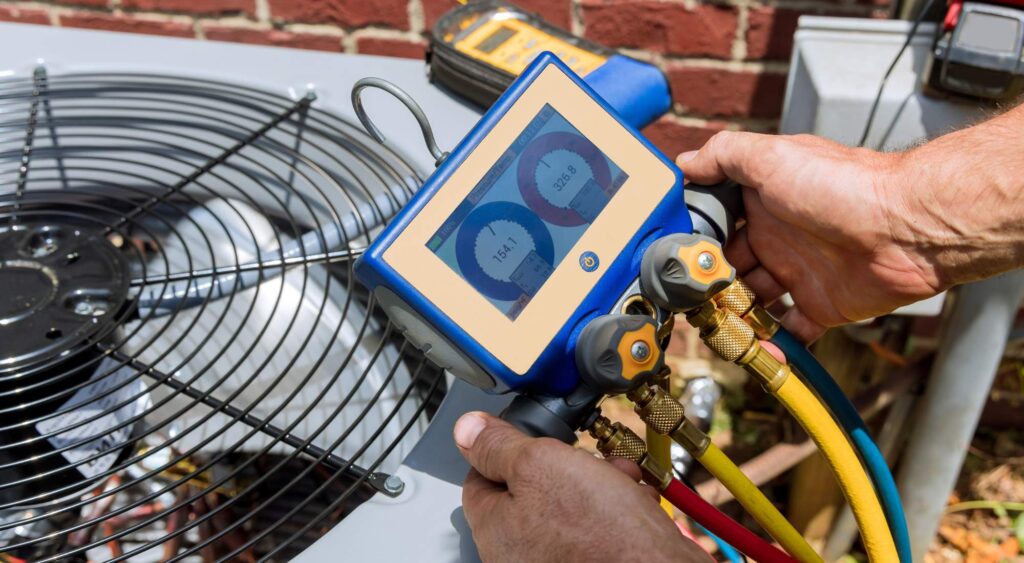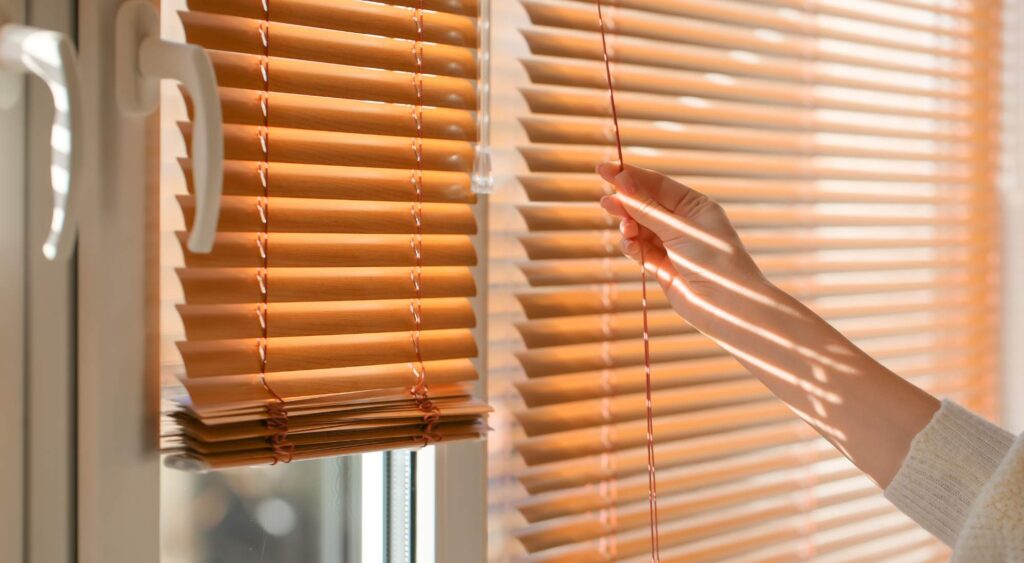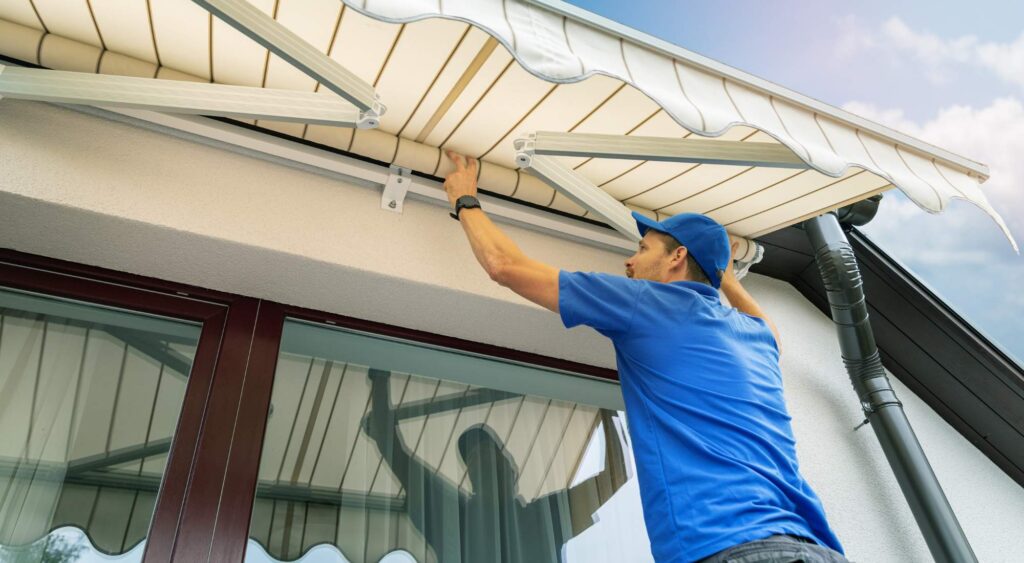
Imagine the continual rumble of a nightstand fan at night, your clothes sticking to the sweat on your skin at all times of the day, and making excuses to get out of your home to run errands where you know the AC will work (and you don’t have to pay for it).
Does this nightmare sound familiar to you? For many Americans, this is the reality of summer.
Your house is your home, but it doesn’t feel like it when it is as hot as Hades. It can be challenging to keep your home cool in the summer without feeling like you’re still burning up and burning even more money.
Don’t relent to just gritting your teeth through the heat. In this article, we will explore a few helpful ways to keep your house cool in the summer and introduce a few methods to prepare your cooling system for the warmer months.
Table of Contents
- Why Is Keeping a House Cool in Summer Important?
- 11 Tips on How To Keep Your House Cool in the Summer
- How To Make Sure Your Air Conditioner Is Ready To Keep Your Home Cool All Summer
- Contact the Experts at AAA Heating and Cooling To Explore Ways To Keep Your House Cool in the Summer
Why Is Keeping a House Cool in Summer Important?
Keeping your house an oasis from the heat isn’t just a matter of comfort; it’s a matter of safety.
Taking a mindful approach to keeping your house cool in the summer may divert risks, such as:
- Heat stroke
- Heat rash
- Heat cramps
- Heat stroke
- Fainting
- Dehydration
Several groups may be particularly at risk for overheating in the summer, including individuals over 65 years, pregnant people, small children, pets, and persons with existing medical conditions.
11 Tips on How To Keep Your House Cool in the Summer
These steps are simple and may be taken by any home that needs a little extra cooling help, whether it has a whole-home AC or not. Even if your home has an AC unit, these tips on how to keep your house cool in the summer can help keep temperatures down to avoid overworking the unit.
While you can do small things to prevent excess heat in your home during the summer, your best line of defense against scorching temps is preparation and HVAC maintenance.
AAA Heating and Cooling recommends employing routine maintenance and inspections to keep your HVAC system in peak working condition. Consider using our HVAC checklist to prepare your AC for the summer months, and contact us for routine inspections and emergency repairs.
#1: Keep Window Coverings Closed
Sunlight can cause your home to absorb heat, regardless of the temperature outside.
Standard double-pane windows typically have a solar heat gain coefficient (SHGC) of .76, which means that 76% of sunlight that enters a home will become heat. By keeping your window coverings closed, you may be able to lower this down to 15%.
Choosing windows that have low SHGC may also help prevent heat from transferring from your windows.
When choosing window covering, drapes, or curtains, opt for lighter shades. Dark window coverings may absorb sunlight, whereas lighter ones will reflect it before it can become heat.
#2: Practice Night Flush Ventilation
Night flush ventilation is a passive cooling strategy that involves keeping windows closed during the day and open during the night. The purpose is to flush out stale air at the end of the day to cool down a building’s thermal mass and structural elements.
It may also help reduce costs and energy burdens placed on AC systems by taking advantage of natural temperature falls to cool a space.
Ideally, this technique works best in climates with hot days and cooler nights. However, you may not want to employ it on nights when the outdoor temperature is higher than your ideal home temperature.
#3: Use Large Appliances in the Cooler Hours of the Day
Appliances use energy to run, which gives off heat. Using large appliances like your washing machine, dryer, or dishwasher during hot days may generate additional heat in your home.
Instead of running these appliances when the temperatures are their highest, opt for using them during cooler hours, like at night or in the morning.
#4: Cook Outside When Possible
If you can’t stand the heat, get out of your kitchen and fire up the grill!
Avoiding the excess heat runoff from an oven or stove may help your home cooler as these cooking appliances.
Summer is not the best time to make chili or baked lasagna anyway. Instead, use the heat as an excuse to fire up the girl for some veggie and meat kebabs paired with a fresh salad.
#5: Use Fans Correctly
If you’ve ever wondered what the little button on your ceiling fan that changes its direction is used for, here’s the answer.
The direction of your ceiling fan may affect the way cool air is pushed around the room.
Warm air rises, so during the winter, your fans should turn clockwise to push it off the ceiling and circulate it around the room.
In the summer, your ceiling fans should turn counterclockwise to push cooler air into a column and create a wind chill effect. To maximize this, you should turn your fans on the highest setting.
You should also remember to utilize your home’s exhaust fans to pull heat from your bathrooms when using the shower and from your kitchen when using the stove.
#6: Install Exterior Shading Features
By reducing the amount of sunlight that hits your windows, you can reduce the amount of solar heat that infiltrates your home. For a more environmental effect, you could plant trees near your windows. For a faster solution, you might consider installing awnings.
According to the Department of Energy, window awnings may reduce solar heat gain in the summer by 65% (for south-facing windows) to 77% (for west-facing windows).
However, some awnings may still need ventilation to keep hot air from being trapped underneath. You can avoid this by choosing flat retractable awnings or ones with small openings on the top or sides.
#7: Add Window Film to Your Windows
According to the International Window Film Association, solar-controlling window film may:
- Reduce solar heat gain by as much as 85%
- Prevent 99% of harmful UV rays from passing through windows
- Improve home energy standards
- Cost 1/10th of the money spent on replacing faulty windows
Window film may help improve your window’s current solar heat gain coefficient while protecting your home, furniture, and family from degrading UV rays.
#8: Close Doors to Empty Rooms
Did you ever have a grandparent who was adamant about keeping the doors of unused rooms closed?
They weren’t being a curmudgeon because this tip works well.
By closing the doors to all empty rooms, you can keep cool air where you need it most. Also, consider closing the air vents in unused rooms so that more cool air can be pushed through them into occupied spaces.
#9: Consider a Light Bulb Upgrade
Would you have guessed that something as small as the light bulbs you use can affect the temperatures in your home?
Incandescent light bulbs emit 90% of their energy as heat, and CFLS release 80%. Compared to LED light bulbs that use 75% less energy and last up to 30 times longer, making the switch is an easy choice.
Not to mention, LED lighting has significant energy-saving potential. According to the Department of Energy, the average household can save up to $225 a year by using LED lighting.
#10: Invest in an Attic Ventilator
During the heat of the summer, some attics can get up to 100 degrees Fahrenheit. By using an attic ventilator, you may be able to prevent heat buildup that may potentially seep below and heat other structures of your home.
Attic ventilators may also help protect your roof and prevent mold growth.
#11: Use a Dehumidifier
When the heat is enough to drive you crazy, you probably won’t find stifling humidity pleasant.
Dehumidifiers may help remove moisture from the air, making rooms feel cooler. They may also help improve the air quality of your home by reducing allergens and mold/mildew growth.
How To Make Sure Your Air Conditioner Is Ready To Keep Your Home Cool All Summer
One of the worst things that could happen during a heat wave is a failed HVAC system.
AAA Heating and Cooling will still have you covered if that happens, but we urge you to take steps to prevent unit breakdowns and reduced AC functions.
Before the summer kicks off, you can annually prepare your HVAC system by:
- Changing your air filters every three months
- Keep the area around your AC unit free of debris
- Regularly perform a visual inspection of your unit to make sure nothing is out of place
- Call AAA Heating and Cooling out for a professional cooling system inspection
- Clean your AC unit and its condenser coils
Proactivity will save you more money, grief, and cool air in the long run. Don’t wait until summer to manage your HVAC system. Call AAA Heating and Cooling today.
Contact the Experts at AAA Heating and Cooling To Explore Ways To Keep Your House Cool in the Summer
As an A+ Better Business Bureau company with over 65 years of experience in the industry, AAA Heating and Cooling is committed to keeping Portland cool.
AAA Heating and Cooling is on a mission to help fellow residents fortify their residential air conditions against the heat.
Just because your HVAC or cooling system isn’t acting up doesn’t mean it does not need year-round attention. Without regular service from a heating and cooling professional, a residential air conditioning unit may lose about 5% of its original efficiency annually.
How well your system runs could make degrees and dollars of a difference in your home’s comfort level and energy bills.
If you’re looking for extra tips or services to help your home or business cool in the summer, schedule an appointment or consultation with us today.



